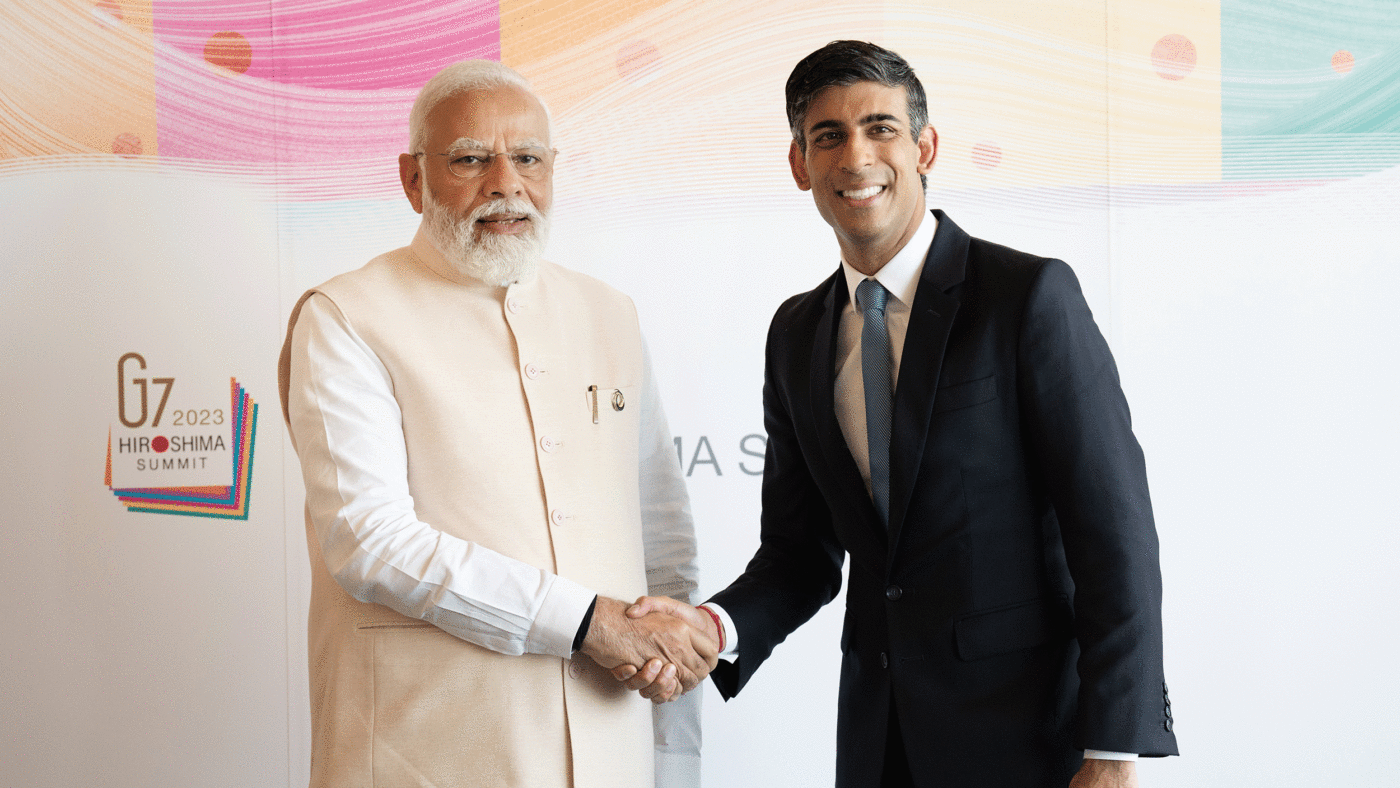The Prime Minister has arrived in India for the G20 summit. It has been rumoured that the government will use it as an opportunity to announce that a deal for a Free Trade Agreement (FTA) between the UK and India has been struck. While a deal has the potential to be very significant, there has been a great deal of misunderstanding surrounding the negotiations and the UK needs to avoid rushing into any deal.
Of all the FTAs the UK has struck or is hoping to negotiate in the future, a deal with India would likely be the most significant. In economic terms, I wrote for this site back in January 2022 on why. India obviously has a huge population of over 1.4bn people who are becoming increasingly wealthy. What’s more, although the country has made its economy more open in its recent history it is still relatively protectionist. For example, tariffs on key British goods are astronomically high with cars facing a levy of 125% and on Scotch it’s 150%. There is also a lot of red tape and bureaucracy for foreign businesses to deal with. As such, any move towards liberalisation would grant UK firms greater access to the Indian market and make their products much more attractive to consumers.
It would also be significant geopolitically. There has been much talk in recent weeks about the growing importance of BRICS which recently had a summit of its own and of which India is a member. The importance of BRICS is overblown. It in no way is going to pose a threat to NATO, rival the G7, or replace the US Dollar. However, it does contain Russia and China which are two countries with which we are not on the best of terms. Given the growing importance of India it is in the UK’s interest to move India away from hostile states such as Russia and China and encourage it to enter into a closer partnership with the UK and other countries which share our values. A trade deal between our two countries will be part of this.
However, it looks as though we are quite some way away from reaching an agreement. The reason for this, according to recent media reports, is because India is asking for more visas and pushing for freedom of movement. While freedom of movement between the UK and India would be a great thing, the reports that this is going to happen are simply not true. The UK already has dramatically increased the number of visas offered to people from India in recent years and so this is not the issue. Rather, India wants businesses working across the two countries to be able to move staff between them more easily. It would also like to see visa fees reduced, greater youth mobility, and some other modest changes. Given the economic benefits to the UK of liberalising the immigration system, these are all things the government should agree to.
The biggest barrier to an agreement appears to be around what India is actually prepared to offer the UK. A major sticking point is around rules of origin which essentially dictate how many components of a product have to be made in the country in order to be considered a product of that country. Given the nature of things like car manufacturing, this would create problems for the UK. Therefore, there would be a risk that while tariffs on British goods are lowered, they wouldn’t actually apply, meaning that they would be no more competitive in the Indian market and so UK businesses would be no better off. There are also issues about the need to cut red tape and bureaucracy in India to make it easier for British firms to do business.
Weirdly, rice is also an issue. As Sam Lowe has pointed out, this is for two main reasons. The first reason is fairly run-of-the-mill (pun intended) protectionism. Slashing tariffs on rice from India would potentially be bad for business for UK mills. The other reason is that any liberalisation could mean the UK has to significantly increase border checks on goods coming into the country which would obviously be problematic. Given the importance of the rice industry to the Indian economy this is obviously going to be an issue.
The government will likely be placing pressure on civil servants and negotiators to strike a deal quickly in order for it to be announced at the G20 as it will make for a nice photo opportunity and positive headlines for the government. Meanwhile, Labour will no doubt complain that the negotiations have dragged on for too long due to government failings. This is the wrong approach to take. A fair criticism of some of the FTAs struck by the UK is that they were often rushed in order to demonstrate that the country is capable of actually negotiating deals and again for the potential for nice photo opportunities for the Prime Minister. This has meant that the deals have lacked depth and the UK has not got as much out of them as it would like. The government should avoid repeating these mistakes and instead be prepared to take the time it needs..
Despite the misleading media coverage about immigration, a trade deal between the UK and India has the potential to be very beneficial to the UK’s interests. However, the government should resist the temptation to rush things and instead hold out for the best possible deal.
Click here to subscribe to our daily briefing – the best pieces from CapX and across the web.
CapX depends on the generosity of its readers. If you value what we do, please consider making a donation.


